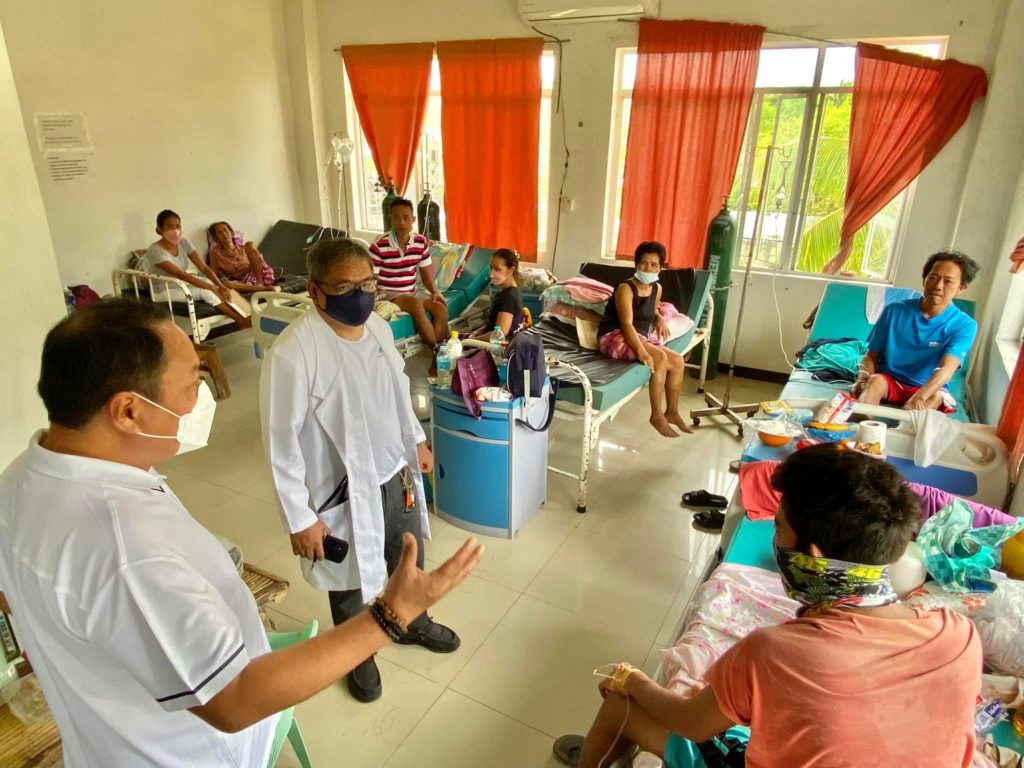
Rep. Pablo John Garcia visit typhoid fever patients in Barili, Cebu. | Photo from the Fb page of Pablo John “PJ” Garcia
CEBU CITY, Philippines – Local officials in Barili, Cebu are now looking into the possibility of poor sanitation as the likely cause behind the increase in the cases of typhoid fever in their locality.
As of June 27, the town’s infirmary and district hospital were still overwhelmed with patients showing symptoms of the deadly bacterial infection.
While health officials there believed several patients got infected after ingesting contaminated water, they also raised the likelihood that open defecation may have contributed to the spread of Salmonella Typhi, the bacteria that causes typhoid fever.
Mary Jane Pañares, Barili’s public information officer, said initial findings from the municipal health’s house-to-house investigation showed that some areas where the infected patients came from have poor hygiene practices such as open defecation.
“According to our MHO (Municipal Health Office) inspectors, possible gyud sha nga it’s contaminated water source probably caused by open defecation. Naa pay nideclare didto sa areas nga open defecation pa gihapon,” said Pañares.
She added that the damage brought by Typhoon Odette, which hit southern Cebu last December, led several residents to resort to open defecation and other poor sanitation practices.
“Ang uban ilahang CR wa pa marepair human sa Bagyong Odette… Naay uban naa silay CR, yes, but since naay uban nga wa na marepair (basin mao na nga nikatag ang kagaw),” Pañares explained.
A report from the World Bank defines open defecation as “the practice of people defecating outside, such as in street gutters, behind bushes or into open bodies of water.”
“Open defecation contaminates sources of drinking water and spreads diseases such as cholera, diarrhea and dysentery,” the report added.
The World Health Organization (WHO) also said poor sanitation practices are often linked to diarrheal diseases like cholera, dysentry, intestinal worm infections, polio and typhoid.
With these new findings, Pañares said, the local government of Barili has expanded its efforts in preventing the spread of typhoid by reminding residents to practice proper sanitation and hygiene, and teaching them how to treat their own water before consumption.
As of June 25, a total of 98 cases of typhoid fever have been recorded in Barili, a second-class town located 55 kilometers southwest of Cebu City.
The disease has already claimed the lives of three individuals there.
RELATED STORIES
Typhoid in Barili: More patients admitted, officials say situation manageable
Barili waterworks systems lack DOH permit: Cebu PHO
98 cases of typhoid fever, 3 deaths reported in Barili, Cebu
/dcb